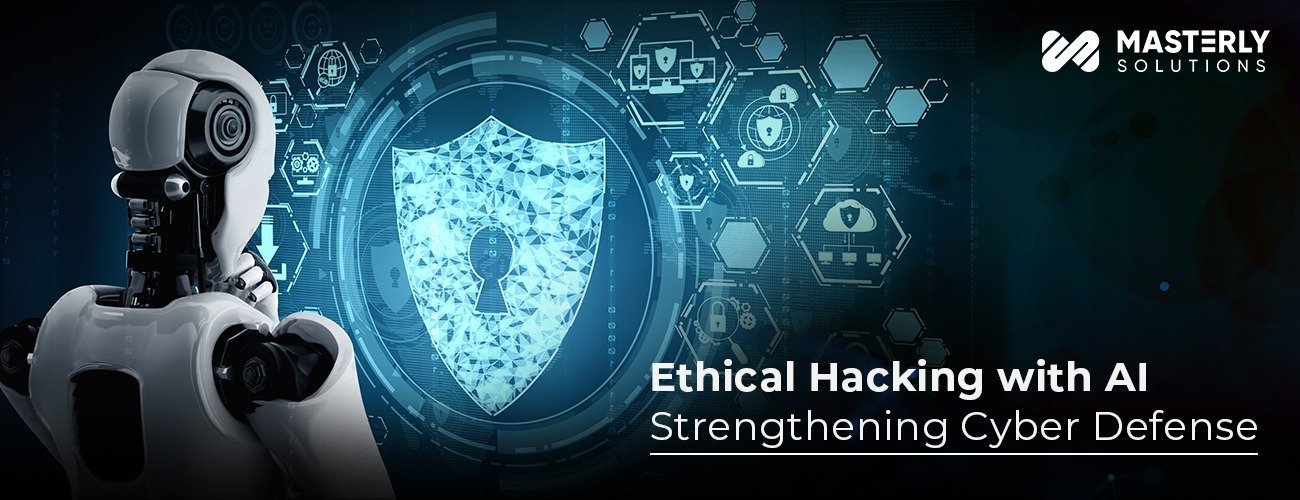
In the rapidly evolving digital landscape, cybersecurity threats are becoming more sophisticated and pervasive. Traditional cyber defense mechanisms often struggle to keep pace with these advanced threats. However, the integration of Artificial Intelligence (AI) in ethical hacking presents a formidable solution to strengthen cyber defense strategies. This blog explores how AI-driven ethical hacking is revolutionizing cybersecurity, offering insights into its mechanisms, benefits, and real-world applications.
The Role of AI in Ethical Hacking
Ethical hacking, the practice of penetrating systems to identify security vulnerabilities, is undergoing a transformation with the advent of AI technologies. AI in cyber defense not only automates routine tasks but also brings intelligence to predict and combat cyber threats proactively.
AI-Driven Ethical Hacking Tools
AI and ethical hacking tools, such as AI-powered vulnerability scanners and intrusion detection systems, are equipped with machine learning algorithms that learn from past data to predict and identify potential security breaches. These tools can adapt to new threats faster than traditional software, making them invaluable for cybersecurity teams.
Cybersecurity AI Applications
The applications of AI in cybersecurity are vast and varied. From predictive analytics for threat detection to natural language processing for analyzing phishing emails, AI cybersecurity applications are making it possible to outpace attackers. AI-driven security solutions can sift through vast amounts of data to identify patterns that might indicate a cyber attack, significantly reducing response times.
Benefits of AI in Strengthening Cyber Defense
Implementing AI in ethical hacking practices offers several key benefits:
-
-
- Enhanced Threat Detection: AI’s predictive capabilities allow for the early detection of threats, well before they can cause significant damage.
- Automated Security: AI-driven ethical hacking can automate the detection of vulnerabilities, allowing human security professionals to focus on more complex tasks.
- Continuous Learning: AI systems continually learn from new data, ensuring that cyber defense strategies evolve in real-time to counter new threats.
-
AI-powered Security Solutions in Action
To illustrate the power of AI in cybersecurity, consider the use of AI-driven ethical hacking in the financial sector. Financial institutions face constant threats from cybercriminals. By implementing AI ethical hacking tools, these institutions can proactively identify and rectify security vulnerabilities, safeguarding sensitive financial data against breaches.
Implementing AI in Ethical Hacking Practices
For organizations looking to integrate AI into their cybersecurity efforts, several steps are crucial:
-
- Assessment of Current Security Posture: Understanding existing vulnerabilities is essential before implementing AI solutions.
- Selection of AI-driven Security Tools: Choose tools that align with your security needs and organizational goals.
- Training and Development: Invest in training for your cybersecurity team to effectively manage and operate AI tools.
- Continuous Monitoring and Evaluation: Regularly assess the effectiveness of AI tools and make necessary adjustments to your cyber defense strategy.
Conclusion
The integration of AI in ethical hacking is not just a trend; it’s a necessary evolution in the fight against cyber threats. By leveraging AI-driven ethical hacking for cybersecurity, organizations can enhance their defensive capabilities, making their digital environments more secure. As we move forward, the synergy between AI and ethical hacking will undoubtedly become a cornerstone of robust cyber defense strategies.
